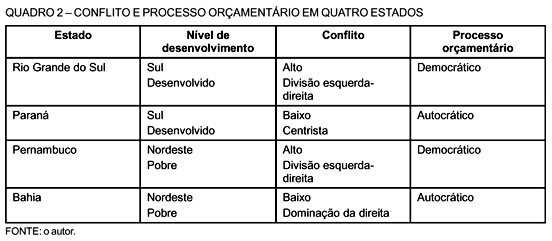Most democracies combine democratic and authoritarian practices, leaving us with a hybridized subtype. The current project examines variations in the degree of democracy and searches for its causes across the Brazilian federation. In particular, the project examines variations in the degree actors outside the executive, especially legislators and civil society, can play an assertive role within budgeting. Budgets are often legally attributed to legislatures, at least for authorization and oversight, yet, most executives monopolize the institutional, political, and technical capacity to play a forceful role in the complex process of managing public resources. In Brazil, however, there is evidence of growing legislative assertiveness and democratic practice in some regions, and this trend reflects wider processes of democratic deepening. The current project examines some of the conditions for democratic deepening in Brazil, a country that formally returned to democracy in 1985 but has consolidated a federal system of uneven democracy. To identify the conditions that lead to democratic deepening, the study highlights trends in four states: two where deepening has occurred, and two where it has not. The project demonstrates the curious result that political conditions, especially levels and types of political conflict, determine the degree of democracy as expressed in budgeting.
budgeting process; democracy; democratization; political conflict



